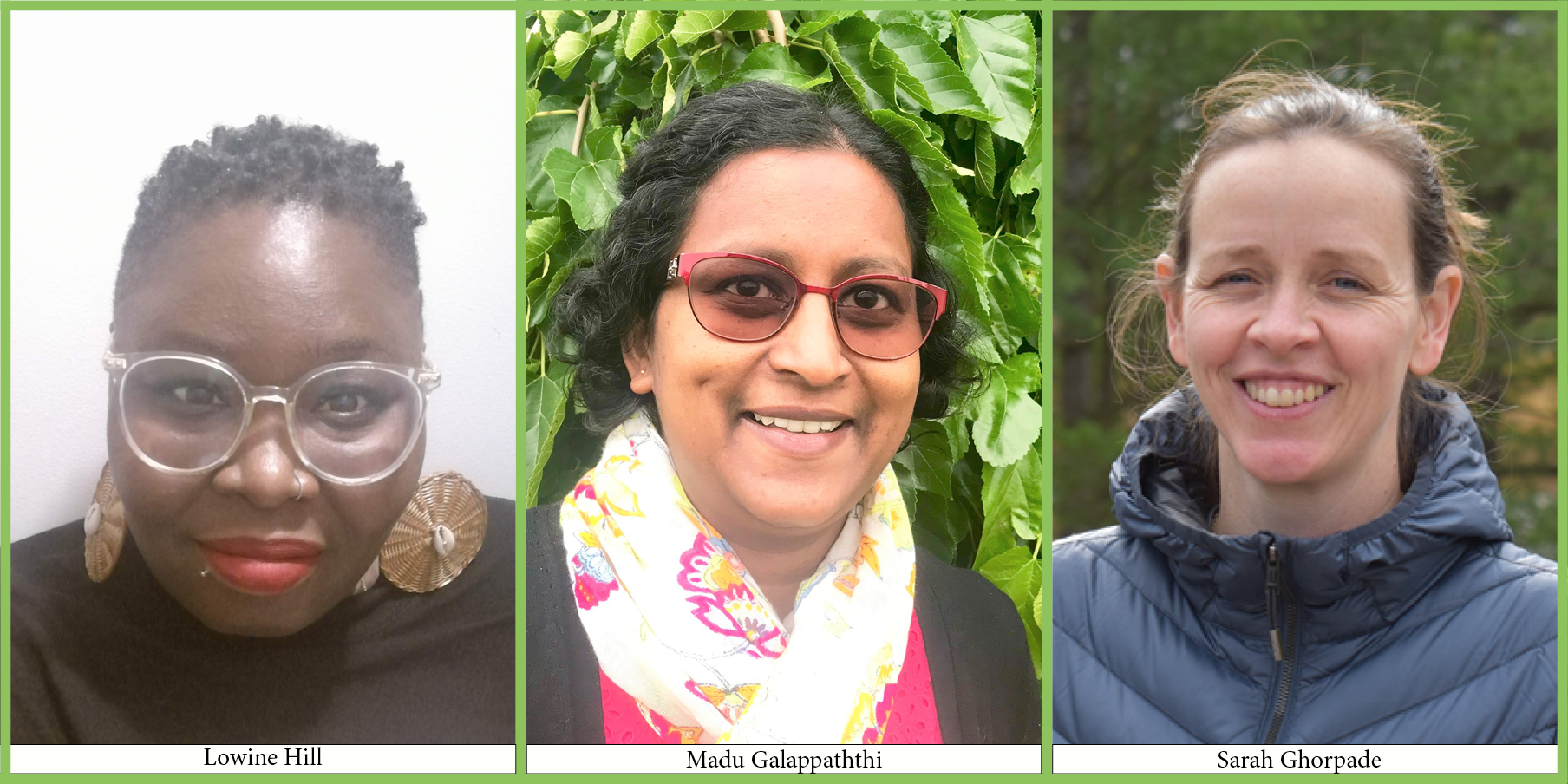
The eLearning course was part of an initiative the three have led since Spring 2021, beginning with a Workshop Series offered to Grad students, followed by a speakers series co-organized with the Faculty in the Fall term.
The result of these two activities culminated in the eLearning course, which they saw as a way to embed the materials and continue the conversation, while addressing a pertinent gap in graduate training in relation to research methodologies.
Remarkably, the inaugural offering of the eLearning Course (non-credit) was designed to help students at any stage of their research to examine the meaning of decolonization with respect to themselves and their research. Participants were guided through a three-step approach, beginning with reflections on each student’s own power and positionality as researchers; then exploring decolonization of the research process more broadly. Finally, they applied this knowledge to their own research, including through bringing other voices and epistemologies into the centre of the research process. Action planning was also a central element of this course.
The course was intended in part to help students develop an understanding of decolonization in the context of sustainability research. "We hear the term "decolonization" a lot - but its meaning can be fuzzy,” said Ghorpade. “One of our aims was to help participants develop an understanding of what it means to them, what it means with respect to sustainability as a discipline, and then to start thinking about ways to take action on it within their graduate research and beyond."
"The need to embed learning about decolonisation and sustainability research through a course was a suggestion that came out strongly during the Speakers Series,” said Hill. “The material resonated with graduate students and faculty alike and addressed a gap.”
The five-week course included five learning modules, two synchronous sessions, and interactive discussion board activities. Each module included a blend of presentations, readings, and video recordings from leading scholars in this space from within Canada and beyond. This included Waterloo’s own professor Janice Barry (School of Planning), professor Deborah McGregor from York University, and Linda Tuhiwai Smith, professor from Te Whare Wānanga o Awanuiārangi, New Zealand.
A total of 14 students participated in the course, comprising Masters and PhD students from across the Faculty of Environment. The course was well received, with many students noting that the course provoked reflections on aspects of their education and research approach that they had not explicitly examined before.
"The course helped me recognize and address some of my own biases and assumptions with respect to how I approach and reference research. It also encouraged me to broaden my perspectives, and integrate different knowledge traditions into my research,” said Alexandra Ho, Master of Climate Change student.
The instructors hope the participants left the course with a better understanding of what decolonization means to them and feel equipped to take tangible steps to addressing it in their own research.
“We do acknowledge that there are realities of graduate student programs, like milestones and timelines, which can limit the extent to which certain strategies can be implemented. But we are hopeful that the learnings of the course will contribute to a shift in mindset about research that will stay with participants throughout their career,” said Galappaththi.
Hill, Galappaththi, and Ghorpade are grateful for the enthusiasm and contributions of the grad community as well as the support they received from the faculty’s staff, faculty members and leadership, particularly Faculty of Environment Dean, Jean Andrey. The trio said, “Dean Jean has been the wind in our sails throughout!”
The trio is encouraged by the impact they have had so far and are looking forward to continuing this conversation with the incoming Faculty leadership.
Link to Fall Speakers Series talks:
Decolonizing Methodologies for Sustainability Research Session 1 with Prof. Ranjan Datta
Decolonizing Methodologies for Sustainability Research Session 2 with Prof. Deborah McGregor
Decolonizing Methodologies for Sustainability Research Session 3 with Prof. Saran Stewart
Decolonizing Methodologies for Sustainability Research Session 4 with Prof. Linda Tuhiwai Smith